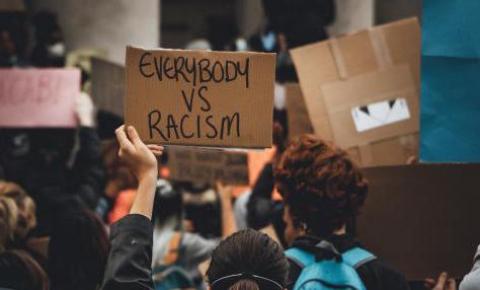Amid the rise of overt and violent White supremacy, the issue of racism is increasingly framed within the binary of 'good' versus 'bad' - i.e. 'racist’ versus the 'rest of us'. This webinar uses the example of the Canadian Anti-Hate Network to challenge this binary, demonstrating how 'hate' emerges from the same discursive paradigm organizing all of society – indeed, even those very elements dedicated to eliminating hate. Specifically, it describes how this group’s hypocritical labelling of ‘hate’ reflects and reproduces the Islamophobic myth that Muslims are particularly and violently ‘hateful’.
Indeed, in Canada and the US, a person is statistically more likely to be killed for being Muslim than by a Muslim 'terrorist'. That, despite this, Muslims can still safely occupy the status of 'threat' in the public imagination is evidence of this myth's effectiveness in invisibilizing and legitimizing the hate directed against Muslims.
Ultimately, this webinar hopes to demonstrate how, in order to honestly engage with racism, we must move beyond the logic of ‘hate’ that safely situates ourselves outside of it – as social workers in the profession of care; and as people who self-identify as anti-racist. Instead, we need analysis and action that implicates us in the very problem we’re trying to address.
This webinar will also introduce the ‘Islamophobia is..’ project – a new anti-racism educational tool that describes the operation of normalized Islamophobia in the Canadian context through short animated videos.
Webinar Objectives
- Understand the operation of Islamophobia and other forms of racism beyond interpersonal incidents, finding evidence of its circulation within mainstream media, state institutions, and ‘respectable’ society
- Recognize the discursive continuities between overt expressions of racial violence and the normalized varieties
- Identify the role of racial myths in propelling – invisibilizing and legitimizing – racial activities and outcomes
- Appreciate the limitations of a ‘hate crimes’ approach to understanding and addressing racism, for the way it nurtures a simplistic ‘racist’ versus ‘non-racist’ binary
- Situate ourselves – as social workers and anti-racists - within normalized racism
- Introduce the ‘Islamophobia is..’ series as a new anti-racism educational tool

